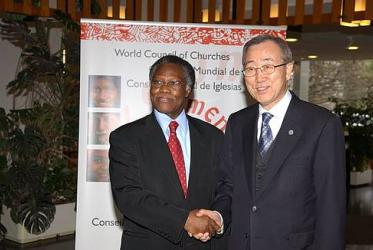Displaying 801 - 819 of 819
24 November 2008
WCC prepares for UN Advocacy Week
12 November 2008
Churches meet to analyze climate change related emergencies
24 September 2008
Bringing hope to a broken world
14 April 2008
WCC statements address climate change, other topics
20 February 2008
Churches want to see a new paradigm on climate change
11 December 2007
Churches develop common platform on climate change
19 April 2007
















